Works
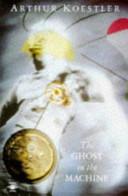
The Ghost in the Machine
Arthur Koestler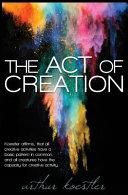
The Act of Creation
Arthur Koestler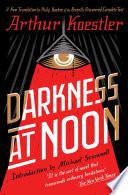
Darkness at Noon
Arthur Koestler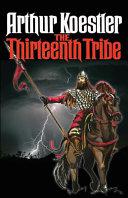
The Thirteenth Tribe
Arthur Koestler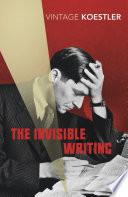
The Invisible Writing
Arthur KoestlerFamous Arthur Koestler Quotes
Source: Drinkers of Infinity: Essays 1955-1967 (1967).
Arthur Koestler Quotes about history
The Thirteenth Tribe (1976).
as quoted by Michael Grossman in the The First Nonlinear System of Differential and Integral Calculus (1979).
The Sleepwalkers: A History of Man's Changing Vision of the Universe (1959)
Arthur Koestler Quotes about reality
Epilogue
The Sleepwalkers: A History of Man's Changing Vision of the Universe (1959)
Epilogue
The Sleepwalkers: A History of Man's Changing Vision of the Universe (1959)
The Act of Creation, London, (1970) p. 253.
Context: Einstein's space is no closer to reality than Van Gogh's sky. The glory of science is not in a truth more absolute than the truth of Bach or Tolstoy, but in the act of creation itself. The scientist's discoveries impose his own order on chaos, as the composer or painter imposes his; an order that always refers to limited aspects of reality, and is based on the observer's frame of reference, which differs from period to period as a Rembrant nude differs from a nude by Manet.
Arthur Koestler Quotes
A Challenge to 'Knights in Rusty Armor, The New York Times, (14 February 1943).
Context: Indeed, the ideal for a well-functioning democratic state is like the ideal for a gentleman's well-cut suit — it is not noticed. For the common people of Britain, Gestapo and concentration camps have approximately the same degree of reality as the monster of Loch Ness. Atrocity propaganda is helpless against this healthy lack of imagination.
Epilogue
The Sleepwalkers: A History of Man's Changing Vision of the Universe (1959)
Context: The uomo universale of the Renaissance, who was artist and craftsman, philosopher and inventor, humanist and scientist, astronomer and monk, all in one, split up into his component parts. Art lost its mythical, science its mystical inspiration; man became again deaf to the harmony of the spheres. The Philosophy of Nature became ethically neutral, and "blind" became the favourite adjective for the working of natural law. The space-spirit hierarchy was replaced by the space-time continuum.... man's destiny was no longer determined from "above" by a super-human wisdom and will, but from "below" by the sub-human agencies of glands, genes, atoms, or waves of probability.... they could determine his fate, but could provide him with no moral guidance, no values and meaning. A puppet of the Gods is a tragic figure, a puppet suspended on his chromosomes is merely grotesque.
Return Trip to Nirvana from Sunday Telegraph (1967).
Context: I profoundly admire Aldous Huxley, both for his philosophy and uncompromising sincerity. But I disagree with his advocacy of 'the chemical opening of doors into the Other World', and with his belief that drugs can procure 'what Catholic theologians call a gratuitous grace'. Chemically induced hallucinations, delusions and raptures may be frightening or wonderfully gratifying; in either case they are in the nature of confidence tricks played on one's own nervous system.
Epilogue [footnote referenced E.T. Whittaker's Space and Spirit (1946)]
The Sleepwalkers: A History of Man's Changing Vision of the Universe (1959)
Writers at Work, ed. George Plimpton (1986).
The Sleepwalkers: A History of Man's Changing Vision of the Universe (1959)
The Invisible Writing (1954).
“God seems to have left the receiver off the hook, and time is running out.”
The Ghost in the Machine (1967).
The Act of Creation (1970).
